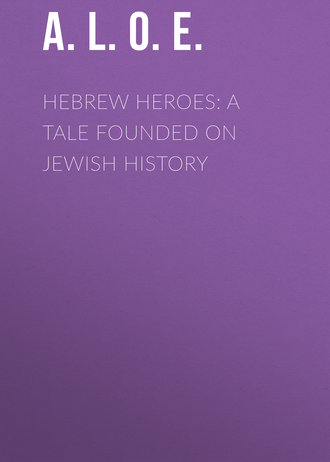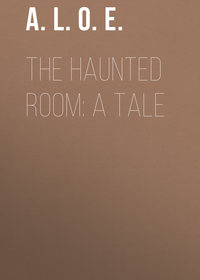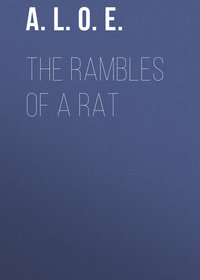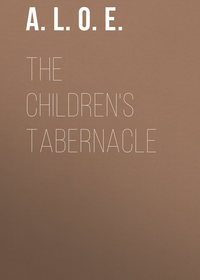 полная версия
полная версияHebrew Heroes: A Tale Founded on Jewish History
The burial was conducted in solemn silence, save as regarded the Hebrew matron, and her deep thrilling accents were meeter requiem for the martyrs than the loudest lamentations of hired mourners would have been. As the chief received each lifeless form into his arms, the matron uttered a short sentence over it, in which words of the ancient Hebrew spoken by her fathers blended with the Chaldee, then the language commonly used by the Jews. Her thoughts, as she gave them utterance, clothed themselves in unpremeditated poetry; the Athenian could neither understand all her words, nor her allusions to the past, but the majesty of gesture the music of sound, made him listen as he might have done to the inspired priestess of some oracle's shrine.
"We may not wail aloud for thee, my son, nor rend our garments, nor put on sackcloth, nor pour dust upon our heads. He who hath bereaved thee of life, would bereave thee even of our tears; but thou art resting on Abraham's bosom, where the tyrant can reach thee no more.
"Thou art taken away from the evil. Thou seest no longer Jerusalem trodden by the heathen, nor the abomination of desolation set up in the sanctuary of the Lord.
"Even as Isaac was laid on the altar, so didst thou yield thy body to death, and thy sacrifice is accepted.
"As the dead wood of Aaron's rod, cut off from the tree on which it had grown, yet blossomed and bare fruit; cut off as thou art in thy prime, thy memory shall blossom for ever.
"The three holy children trod unharmed the fiery furnace seven time heated. He who was with them was surely with thee; and the Angel of Death hath bidden thee come forth, naught harmed by the fire, save the bonds of flesh which thy free spirit hath left behind.
"To touch a dead body is counted pollution; to touch thine is rather consecration; for it is a holy thing which thou hast freely offered to God."
With peculiar tenderness the matron breathed her requiem over the seventh body as it was laid by the rest.
"Youngest and best-beloved of thy mother; thou flower of the spring, thou shalt slumber in peace on her bosom. Ye were lovely and pleasant in your lives, in your deaths ye are not divided."
It was with calm chastened sorrow that the last farewell had been spoken as the bodies of the martyred brethren had been placed in their quiet grave; but there was a bitterness of grief in the wail of the Hebrew woman over their mother, which made every word seem to Lycidas like a drop of blood wrung from the heart of the speaker.
"Blessed, oh, thrice blessed art thou, Solomona, my sister, richest of mothers in Israel! Thou hast borne seven, and amongst them not one has been false to his God. Thy diadem lacks no gem – thy circle of love is unbroken. Blessed she who, dying by her martyred sons, could say to her Lord: Lo, I and the children whom Thou hast given me;" and as the matron ended her lament, she tore her silver hair, rent her garments, and bowed her head with a gesture of uncontrollable grief.
All the bodies having been now reverentially placed in the grave, the chief rose from it, and joined his companions. Abishai then thus addressed him: —
"Hadassah hath made her lament. Son of Phineas, descendant of Aaron the high-priest of God, have you no word to speak over the grave of those who died for the faith?"
The chief lifted up his right hand towards heaven, and slowly repeated that sublime verse from Isaiah, which to those who lived in that remote period must have seemed as full of mystery as of consolation, —"Thy dead shall live! My dead body shall they arise! Awake and sing, ye that dwell in dust: for thy dew the dew of herbs, and the earth, shall cast out the dead."1
The sound of that glorious promise of Scripture seemed to rouse Hadassah from her agonizing grief; she lifted up her bowed head, calm and serene as before. Turning to the veiled woman near her, she said, "We may not burn perfumes over these our honoured dead, but you, Zarah, my child, have brought living flowers for the burial, and their fragrance shall rise as incense. Cast them into the grave ere we close it."
Obedient to the command of her aged relative, the maiden whom Hadassah had addressed glided forward to the brink of the grave, and threw down into it a fragrant shower of blossoms. The movement threw back her veil, and there flashed upon Lycidas a vision of loveliness more exquisite than the poet had ever beheld even in his dreams, as the full stream of moonlight fell on the countenance of the fairest of all the daughters of Zion. Her long dark lashes drooped, moist with tears, as she performed her simple act of reverence towards her dead kinsmen; then Zarah raised her eyes with a mournful sweet expression, which was suddenly exchanged for a look of alarm – she started, and a faint cry escaped from her lips. The maiden had caught sight of the stranger crouching in the deep shadow, her eyes had met his – concealment was over – Lycidas was discovered!
CHAPTER III.
LIFE OR DEATH
"A spy! a traitor! cut him down – hew him to pieces!" such were the cries, not loud but terrible, that, as thunder on flash, followed that exclamation from Zarah. Cold steel gleamed in the moonlight; Lycidas, who had scarcely before thought of his own personal danger, found himself in a moment surrounded by a furious band with weapons upraised to take his life. With the instinct of self-preservation the young Athenian sprang forwards, clasped the knees of the leader, and exclaimed, "No spy – no Syrian – no foe! as ye would find mercy in the hour of death, only hear me!" Then, ashamed at having been betrayed into showing what might look like cowardly fear, the Greek stood erect, but gasping, expecting that ere he could draw another breath he should feel the dagger in his side, or the sword at his throat.
"Hold – let him speak ere he die!" cried the leader; and, at his gesture of command, uplifted blades were arrested in air, and like leopards crouching in act to spring, the Hebrews surrounded their prisoner, to prevent the possibility of his making his escape.
"What would you say in your defence, young man?" asked the leader, in tones calm and stern. "Can you deny that you have been present as a spy at a scene to have witnessed which places the lives of all here assembled in your hands?"
"I am a Greek, an Athenian," said Lycidas, who had recovered his self-possession, and who intuitively felt that he was at the mercy of one who might be sternly just, but who would not be wantonly cruel. "I am here, but not as a spy – not to look with prying eyes upon your solemn and sacred rites. Led by chance to this spot, sleep overtook me under this tree. I would forfeit my right hand, nay, my life, rather than betray one engaged in the noble act which I have accidentally witnessed tonight."
"Will you hear him, the heathen dog, the son of Belial, the lying Gentile!" yelled out Abishai, his gleaming white teeth and flashing eyes giving to him an almost wolf-like ferocity of aspect, that well accorded with his cry for blood. "He was present – I know it – when our martyred brethren were slain; ay, he looked on their dying pangs! – tear him to pieces – set your heel on his neck – he has rejoiced at the slaughter of the just."
"No!" cried Lycidas with vehemence; "I call to witness the – "
"Stop his blaspheming tongue with the steel!" exclaimed Abishai furiously; "let him not profane our ears with the names of the demons whom he worships. Cut him off from the face of the earth – that grave will hold one body more – the blood of our brethren cries out for vengeance!"
Several voices echoed the fierce appeal, but amongst the wild cries for revenge, the ear of Lycidas, and the ear of the leader also, caught the maiden's faint exclamation, "Oh, Judas, have mercy! spare him!"
Still the extended hand of the chief alone kept back the fierce band who would have cut down their defenceless victim. But there was painful doubt on the brow of the leader; not that he was influenced by the demand for blood from Abishai and his fierce companions, but that he was aware of the extreme risk of setting the captive free. Lycidas felt that his fate hung on the lips of that calm princely man, and was almost satisfied that so it should be; a thought rose in the mind of the Greek, "If I must die, let it be by his hand."
"Stranger," began the son of Mattathias, and at the sound of his voice the tumult was hushed, and all stood silent to listen; "I doubt not your word, I thirst not for your blood – were my own life only at stake, not a hair of your head should be harmed. But on your silence as to what you have seen this night depends the safety of all here assembled, even of these daughters of Zion, for the tyrant spares not our women. We have no power to detain in captivity – we have but one way of ensuring silence; would you yourself – with the grave of those martyrs before you – be able to reproach us with cruelty should we decide on taking that way?"
Lycidas met without blenching the calm sad eyes of the speaker, but he could not answer the question. He knew that under like circumstances neither Syrian nor Greek would feel hesitation before, or remorse after, what would be deemed a stern deed of necessity. The eloquent lips of the poet had no power to plead now for life.
"Why waste words!" exclaimed fierce Abishai; "why do you hesitate, Judas? One would scarce deem you to be the descendant of that Phineas who won deathless fame by smiting Zimri and Cosbi through with a dart. 'Thine eye shall not pity, nor thine hand spare.' Guilt lies on your head if you let Agag go. Was not the Canaanite to be rooted out of the land? Who dare bid us draw back when the Lord hath delivered the prey to our swords?"
"I dare – I do," cried Hadassah, advancing with dignity to the edge of the grove which separated her and her grand-daughter Zarah from the Hebrew men and their captive. "Shame on you, Abishai, man of blood. Yea, though you be the husband of my dead daughter, I repeat, shame on you to bring the name of the Lord to sanction your own thirst for vengeance! Hear me, son of Mattathias; ye men of Judah, hear me. The Merciful bids me speak, and I cannot refrain from speaking the words which He puts into my mouth."
The matron was evidently regarded with reverence by those who were present. Judas was related to her by blood, Abishai by marriage; two of the other five Hebrews had been her servants in her more prosperous days. But it was chiefly the dignity of Hadassah's character that gave weight to her speech; the widowed lady was regarded in Jerusalem almost as a prophetess, as one endued with wisdom from on high. Her pleading might not be effectual, but would at least be listened to with respect.
"The Canaanite was swept from the land," said Hadassah; "Zeba and Zalmunna were slain; Cosbi and Zimri were smitten through with a dart; but these were sinners whose cup of iniquity was full, and the swords of Israel executed God's righteous vengeance upon them, even as the waves of the sea overwhelmed Pharaoh, or the flood a world of transgressors. But the God of justice is the God also of mercy, slow to anger and plenteous in goodness. He calleth vengeance – though His work – His strange work (Isa. xxviii. 21). He hath given command, by His servant the Preacher, If thine enemy be hungry, give him bread to eat; and if he be thirsty, give him water to drink (Prov. xxv. 21). Rejoice not when thine enemy falleth; and let not thine heart be glad when he stumbleth" (Prov. xxiv. 17).
"An enemy born of the house of Israel, not a vile Gentile," muttered one of the men who were present.
"Is the Lord the Maker only of the Jew; made He not the Gentile also?" cried Hadassah. "Thou shalt not oppress a stranger, saith the Lord, seeing ye were strangers in the land of Egypt (Ex. xxiii. 9). Did not Hobab the Midianite dwell among the people of Israel; was not Achior the Ammonite welcomed by the elders of Bethura; was not the blood of the Hittite required at the hand of David, and Ittai the Gittite found faithful when Israelites fell away from their king? God said of Cyrus the Persian, He is my shepherd (Isa. xliv. 28), and Alexander of Macedon was suffered to offer sacrifices to the Lord God of Jacob. Yea, hath not Isaiah the prophet declared that He, the Holy One, the Messiah, for whose coming we look, shall bring forth judgment to the Gentiles (Isa. xlii. 1), shall be a light of the Gentiles (Isa. xlii. 6), that He will lift up His hand to the Gentiles (Isa. xlix. 22), so that their kings shall be nursing-fathers, and their queens nursing-mothers to His people (Isa. xlix. 23)? Ay, a time is coming – may it speedily come! – when the idols He shall utterly abolish (Isa. ii. 18), when the Lord's house shall be established, and all nations shall flow unto it (Isa. ii. 2), when the earth shall be filled with the knowledge of the glory of the Lord, as the waters cover the sea" (Hab. ii. 14).
The noble features of the aged matron kindled as with inspiration, and as she raised her hand towards heaven, she seemed to call the Deity to confirm His glorious promises of mercy to the people yet walking in darkness.
A confused murmur rose amongst the listeners; if Hadassah's appeal had impressed some, it had stirred up in others the fierce jealousy which made so many Jews unwilling that the Gentiles should ever share the privileges of Abraham's race. The captive's life hung upon a slender thread, and he knew it.
"Hadassah," said the chief, addressing the widow with respect, "do you then require that we should trust this stranger, when – if he prove false – so many Hebrew lives will be the forfeit of confidence misplaced?"
"I require that you should trust Him who hath said, Thou shalt do no murder; who hath ordained that whoso sheddeth man's blood, by man shall his blood be shed. We show little faith when we think to find safety in transgressing the law of our God."
Again rose a fierce, angry murmur. Lycidas heard the words, "folly, madness, tempting Providence," mingled with imprecations on "dogs of heathen," "idolaters," "the polluted, the worshippers of graven images."
Judas laid hold on his javelin, which he had placed against the trunk of the olive when he had exchanged the weapon for the spade. The heart of Lycidas throbbed faster, he read his own death-warrant in the movement, but he braced his spirit to fall bravely, as became a fellow-citizen of Miltiades. Again there was profound silence, all awaiting what should follow that simple action of the leader.
"Time passes, every minute that we linger here is fraught with peril, our decision must be prompt," said Judas, and he motioned to Hadassah and Zarah to join the company of men on the side of the grave nearest to the stem of the tree. When they had done so, the son of Mattathias cast his javelin down on the ground. "Let those who would let the captive go free, those who would trust his gratitude and honour, pass over my javelin," cried Judas. "If the greater number cross it, we spare; if they remain here, we slay. Are you content?" he inquired.
There was a murmured "Content" from most of those present. The chief then turned his glance on Lycidas, and with stern courtesy repeated his question to the Greek. The young captive bowed his head, folded his arms, and answered "Content."
"The women shall not vote!" exclaimed Abishai. "They shall vote," said the chief, with decision; "their peril is equal to ours, and so shall their privilege be."
It was with strangely mingled emotions that Lycidas beheld, as it were, the balance raised, one of the scales of which was weighted with his freedom and life! Fear was scarcely the predominating feeling. A cloud for a few moments darkened the face of the moon, but through the shadow he could see the stately dark figure of Hadassah as she crossed over the javelin, and the flutter of Zarah's white veil. As the silver orb emerged from the cloud, the women were followed by the two Hebrews who had once been servants to Hadassah.
"Four on that side – five on this – he dies!" cried Abishai eagerly; but even as the exclamation was on his lips, Judas with a bound sprang over the javelin, and stood at the side of Zarah.
"He lives – the Merciful be praised!" cried Hadassah. Abishai, with a muttered curse, thrust back his thirsty blade into its sheath.
"Captive, depart in peace," said the son of Mattathias; "but ere you quit this spot, solemnly vow silence as to what you have witnessed here."
Lycidas instantly obeyed. "May I share the torments of those whose grave – but for your mercy – I should have shared, if I ever prove false to my oath," cried the Greek.
The chief waved his hand to bid him depart, and leave the Hebrews to complete the solemn work which his appearance had interrupted.
Lycidas, however, showed no haste to escape. He glanced towards Hadassah and Zarah. "May I not speak my gratitude," he began, advancing one step towards them; but the widow by a gesture forbade his nearer approach.
"Live your gratitude, speak it not, stranger," said she. "If ever you see son or daughter of Abraham in peril, remember this night; if ever your enemy stand defenceless before you, remember this night. And when next you would bow down before an idol, and pray – as your people pray – to the deaf wood and the senseless stone, pause and reflect first upon what you have learned on this sacred spot of the faith of the Hebrews," Hadassah pointed to the open grave as she spoke, "how it can nerve the weak to suffer, and induce the strong to spare!"
CHAPTER IV.
FOLLOWING BEHIND
As he quitted that place of burial, which he had little expected to leave alive, Lycidas felt like one under an enchanter's spell. Joy at almost unhoped-for escape from a violent death was not the emotion uppermost in his mind, and it became the less so with every step which the Athenian took from the olive-grove. Strange as the feeling appeared even to himself, the young poet could almost have wished the whole scene acted over again, notwithstanding the painfully prominent part which he had had to play in it. Lycidas would not have been unwilling to have heard again the fierce cries and execrations, and to have seen once more the flashing weapons around him, for the sake of also hearing the soft appeal, "Have mercy, spare him!" and to have had another glimpse of Zarah's form and face, as, with a halo of moonlight and loveliness around her, she dropped her tribute of living flowers into the grave of the dead.
"These Hebrew women are not as the women of earth, but beings that belong to a higher sphere," thought Lycidas, as he pursued his way towards the city. "That aged matron has all the majesty of a Juno, and the maiden is fair as – nay, to which of the deities of Olympus could I compare one so tender and so pure! Venus! the idea were profanation – chaste Dian with her merciless arrows – Pallas, terrible to her enemies? no! Strange that it should seem an insult to the women to compare her to the goddess!"
Lycidas gazed upwards at the exquisite blue of that Eastern sky, and around him at the fair landscape of hills and valleys calmly sleeping in moonlight. A thrilling sense of beauty pervaded his soul.
"Oh, holy and beneficent Nature," he murmured, "hast thou no voice to explain to men through thy visible glories the mysteries of the invisible! Dost thou not even now whisper to my soul, 'purity and goodness are the attributes of Divinity, for they are stamped upon the works of creation; and so must purity and goodness be the badge of the Divinity's true worshippers on earth!' There is a spirit stirring within the breast that echoes this voice of Nature, that repeats, 'purity and goodness, not power and might, give the highest dignity to mortal or immortal!' But if it be so, if my hand have touched the mighty veil which shrouds the truth from man's profane gaze, if I have a glimpse of the sacred mystery beyond, how far from that truth, in what a mist of error must all the nations of earth be wandering now!" Lycidas unconsciously slackened his steps, and raised his hand to his brow. "Perhaps not all," he reflected; "from what I hear it appears that this Hebrew nation, this handful of conquered people groaning in bondage, hold themselves to be the sole guardians of a faith which is lofty, soul-ennobling, and pure. They deem themselves to be as a beacon on a hill set on high, throughout ages past, to show a dark world that there is still light, and a light which shall yet overspread the earth as the waters cover the sea; those were the words of Hadassah. And she spake also of One who should come, One looked for by the Jews, who shall bring judgment unto the Gentiles. Do the Hebrews hope for the advent of a Deity upon earth, or only that of a prophet? I would that I could see Hadassah again; and I will see her – I will never give up the search for one who can guide unto knowledge; come what may, I will look upon her and on that beauteous maiden again!"
Absorbed as he was by such thoughts, there is little wonder that the young Athenian missed his way, and that he unconsciously wandered in a direction different from that which he had intended to take. The moonlight also failed him, clouds had arisen, and only now and then a fitful gleam fell on his path. Lycidas became at last uncertain even as to the direction in which Jerusalem lay. The young Athenian was weary, less from physical fatigue than from the effects of strong excitement upon a sensitive frame. Sometimes he fancied now that he heard a stealthy step behind him, and stopped to listen, then felt assured that his senses must have deceived him, and went on his way, groping through the darkness. What a strange episode in his existence that night appeared to the Greek – scarcely a mere episode, for it seemed to him that it absorbed into itself all the true poetry of his life as regarded the past, and gave him new aspirations and hopes as regarded the future. To Lycidas the remembrance of his poetical triumph in the Olympic arena, the plaudits which had then filled his soul with ecstatic delight, was little more than to a man is the recollection of the toys which amused his childhood. The Greek had been brought face to face with life's grand realities, and what had strongly excited his ambition once, appeared to him now as shadows that pass away.
"And yet," mused the young poet, "I would fain once more win the leafy crown, that I might lay it at Zarah's feet. But what would such a trophy of earthly distinction be to her? not worth one of the flowers, hallowed by her touch, which she cast into the martyrs' grave! Ha! again! I fancied that I heard a rustle of garments behind me! How powerful is the imagination, that mirage of the mind, that makes us fancy the existence of things that are not!"
Lycidas had now reached a part of the road which bordered an abrupt descent to the left, the hill along whose side the path wound appearing to have been scarped in this place, probably to leave wider space for some vine-clad terrace below. Lights were gleaming in the far distance, marking the position of the city in which the guests of Antiochus, preceded by torch-bearers, were wending their way back to their several homes. Sounds of wild mirth, from those reeling back from the revels, were faintly borne on the night breeze from the distant streets.
Lycidas, however, when he reached the point whence the lights were visible, was not left a moment either to gaze or to listen.
"Dog of a Gentile – I have you!" hissed a voice from behind; and Lycidas was instantly engaged in a life or death hand-to-hand struggle with Abishai the Jew, who, as soon as he could steal away from his companions at the grave, had followed and dogged the steps of the Greek. It was almost a hopeless struggle for the young Athenian; his enemy surpassed him in strength of muscle and weight of body, wore a dagger, and was determined to use it, though some wild sense of honour had prevented Abishai from stabbing the unconscious youth without warning, when he stole upon him from behind. But the love of life is strong, and desperation gives almost supernatural power. Lycidas felt the keen blade strike him once and again, he felt his blood gushing warm from the wounds, he caught the arm uplifted to smite, with despair's fierce energy he endeavoured to wrench the murderous weapon away. The two men went wrestling, struggling, straining each sinew to the utmost, drawing nearer, inch by inch, to the brink of the steep descent. Abishai dropped his dagger in the struggle, and could not stoop to attempt to recover it in the darkness, but he grasped with his sinewy hand the gasping youth by the locks, and, with a gigantic effort, hurled him over the edge.





